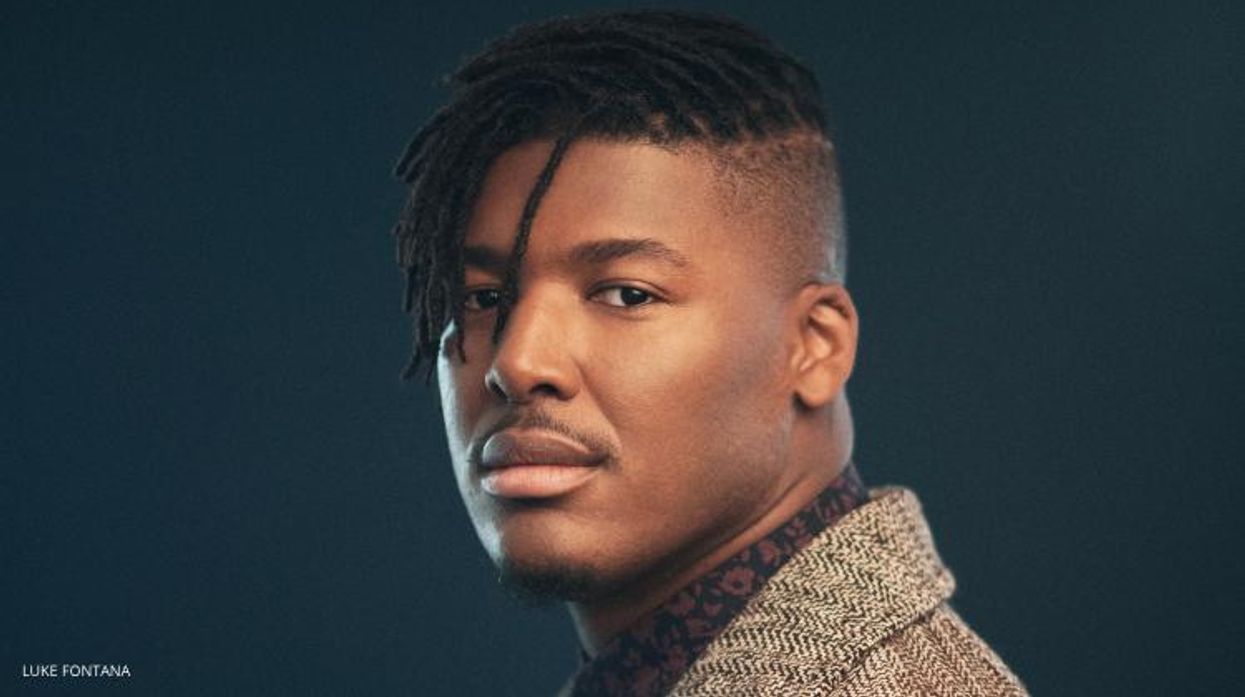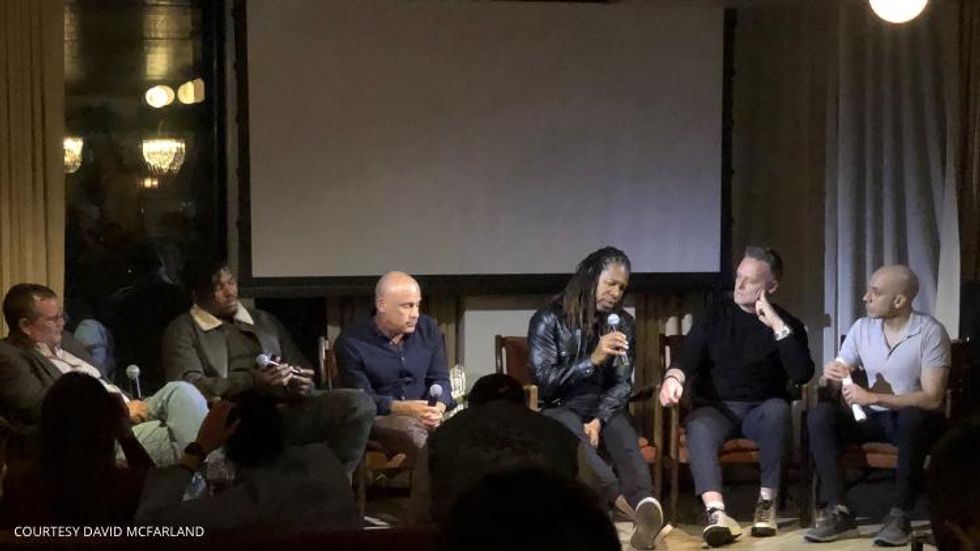"It feels like four lifetimes ago," NFL player Ryan Russell recently said about his coming out. "My life has changed on every level, spiritually, my friendships, my relationships, my confidence in how I look at myself, talk to myself, and essentially love myself."
Russell spoke publicly about his experience as a gay player during a discussion at West Hollywood's Soho House, led by Advocate editors Donald Padgett and David Artavia, and focused on LGBTQ inclusion in major league sports.
The sold-out event included out sports journalists Kevin Arnovitz (ESPN) and LZ Granderson (ESPN magazine), David McFarland (executive producer of the documentary Alone in the Game), and Advocate cover star Russell, who, in April, became the first active NFL player to come out.
Despite the growing nationwide acceptance of LGBTQ Americans, the world of professional sports continues to be unsettling, if not downright frightening, for many queer people.
As examined in Alone in the Game, homophobia, transphobia and a culture of secrecy persist in American sports leagues. In the five major North American professional leagues (NFL, NBA, NHL, MLB, and MLS), there are no out gay male professional athletes currently competing.

From left: Padgett, Russell, Arnovitz, Granderson, McFarland, and Artavia
Said Russell: "When I think of my journey of how I got to that moment, I don't think I realized at the time how I really felt about myself, how hiding and being a closeted athlete and achieving my dreams as someone who felt like a caricature of me or like a creation that I made up, or an imaginary character, how it affected the way I love my real self, the way I thought about my real self, the way I thought about myself in my mind, and how my day to day went about."
Granderson also spoke about sports being the ultimate unifier when it comes to communities of all sorts.
"I relate sports, music, and even film in the same way," Granderson explained. "In music you can have two individuals who are on the opposite sides of every possible spectrum, but if they love U2, in those two hours they're in a concert together, they're family. Sports is the same way: You can have a racist ass motherfucker who hates gay people, but damn it if the Lakers win a championship, they're hugging and kissing the gay guy next to them. And that's the beauty of something that brings the community together, like sports."
Arnovitz discussed how athletes might find the courage to come out if the media focused more on the tremendous progress that's been made in the sports world.
"I think it's really important we express [sports] is a better space than it used to be," Arnovitz said. "I can only speak for myself, in the last several years I've found it to be nothing but a welcoming, great environment. Stupid people say stupid things in the media room. I certainly have been witness to that. If my goal is to have six dozen LGBT journalists, I want to go on the rooftops and say, 'This is a very cool place to work! And by the way, you can create change. You get to speak to executives, coaches, and decision makers.'"
Arnovitz, who is in his 12th season covering the NBA for ESPN, continued, "I'm making an assumption here, but I think I've moved people. I've gotten players to think about this issue differently. I have had coaches say, 'I thought about what you said during the off season about practice environment. And we had a conversation at the first training camp when we did our orientation.' I don't want to sweep any homophobia under the floor... but at the same time, I think we can [fight discrimination] and still accentuate some of the progress: [Russel's] life was better [after coming out]. Jason [Collin's] life was better."
Furthermore, McFarland spoke about the genesis of the documentary Alone in the Game.
"I've been working in this space for a long time and I've been speaking to closeted athletes for a long time, so I know these stories. I know what's going on," McFarland said. "It got to a point where these stories weren't being told... I felt as a storyteller we needed to put this on the big and little screen so the audience, the leagues, the coaches, the family, society and culture, could really walk in the shoes with these athletes and understand what they go through on a day-to-day basis and why being gay has nothing to do with their performance on the field. If their in the closet, it effects their mental state in a huge way. And so if that was lifted, their performance would go to a whole new level."
Closing out the night, Russell spoke beautifully about how we can celebrate young athletes who come out by leading by example.
"Bravery should be celebrated -- whether it be gender or whether it be sexuality, a woman's story, a man's story -- there should be acceptance," Russel explained. "Coming out is such a personal journey and there are so many different layers to it. Some things you have to go through on your own and hopefully there will be people there to celebrate you."
"When I came out, one of the first people that I really wanted to sit down and talk to was Jason Collins because as a professional athlete and as a Black man, he was the closest to my personal experience that I had available," Russel added. "As more of these people, more of these stories, come to the forefront... I believe it will always be easier for the next person."
He continued, "Being first, it's hard. You're first. That's the whole point of it. But in doing so, you are making it easier for so many people on so many different levels. There are stories that need to be uplifted and need to be celebrated. The part that athletes play in it is understanding that the most amazing thing about sports is the unity and the love. It is what it is. People who've never met one another will celebrate the same teams. We idolize people and create our heroes and believe in dedication and hard work... We agree on these things, we live for these people and these stories, and that should transfer to out athletes."
"Yes we need more out athletes, but we can do a lot of things to make life after coming out visibly and noticeably better and emphasize that.... With that being said, we need to be readily available when athletes do come out. And when young children who identify as queer want to join sports, we [must] encourage them."
Watch a clip of Alone in the Game below:





































































Charlie Kirk DID say stoning gay people was the 'perfect law' — and these other heinous quotes